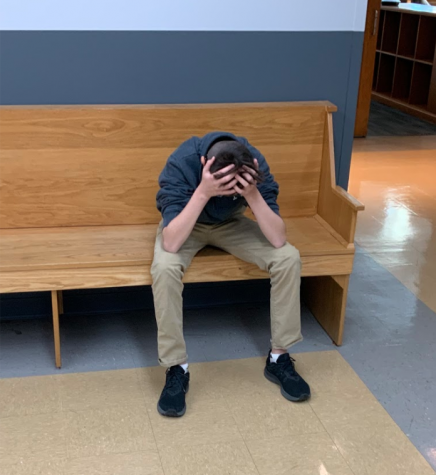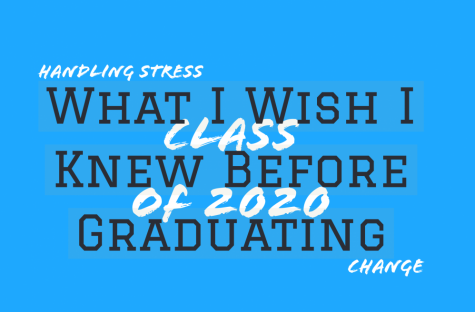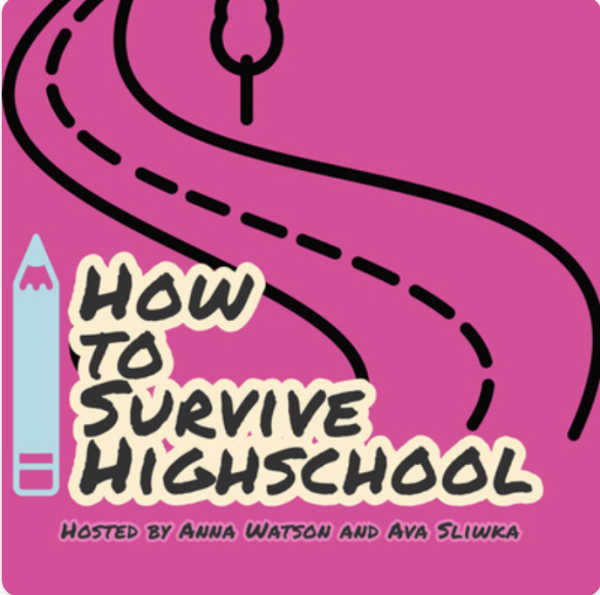Opinion – effects of a strict classroom
December 9, 2021
Reflecting on my 12 years of schooling has allowed me to notice that from classroom to classroom there is often an obvious difference in discipline expectations. I think that the degree of discipline enforcement can have impacts on students’ productivity, participation, anxiety levels, and overall performance.
As I reflect on my time spent in classrooms at Nazareth with low levels of strictness, I’ve noticed that my levels of productivity varied based on my workload and deadlines. For example, if I was given an assignment that wasn’t due at the end of the class, but contained a lot of work, I would often split screen my iPad, half with work and half with something that I found entertaining.
I will admit that I would take a lot of breaks from my work and, more often than not, I either wouldn’t get a lot of my work done in class, or I would finish my work at a much slower pace without time for other assignments because I knew that the teacher for that specific class would be more lenient with deadlines.
Junior Megan Myers said that she prefers more relaxed classrooms. “In those classrooms, I’m doing a lot better because I’m actually comfortable in the environment, so I’m not feeling criticized and I have more time to really focus and get my work done the right way.” Myers admits that her productivity could be less, but at the same time, she feels much more comfortable and feels like she’s doing better in comparison to her more strict classrooms.
As far as participation in relaxed classrooms goes, in classes where there aren’t as many rules and restrictions placed on me as a student, I feel a lot more comfortable raising my hand and answering questions and even participating in class discussions where raising your hand isn’t necessary. I’m a pretty shy student, so even in these classes, I’m still hesitant, but I’m so much more likely to take a shot at a question that I don’t know the answer to.
When it comes to asking questions in class when I need clarification, I’m much more likely to ask a question in a class with a more relaxed atmosphere. I think this is because I feel like there’s less judgment and more room for error and confusion.
Myers agrees and also points out that the relationship with the teacher matters, too. She said she was definitely way more likely to answer questions if it’s for a class with a teacher that she has a good relationship with and she’s comfortable being around. She also said that when she has questions in relaxed classrooms, she feels more comfortable. “I still get nervous from time to time, but if I’m in an environment where I feel safe and not judged, I’m more likely to voice my opinions and my questions,” said Myers.
I’m a fairly anxious person in general, but my anxiety levels in classrooms that have less discipline or rules is definitely lessened. I tend to feel more comfortable in classrooms where I feel like the teacher understands that some students are more anxious or shy than others and respects that.
A junior who wishes to remain anonymous shares a similar experience and described her anxiety as, “Definitely low, if I’m feeling like I’m in a safe environment, I’m not worried all the time and feeling like I’m being judged by my superiors.”
My overall performance in these relaxed classrooms has a track record of not reflecting my best performance when it comes to percentages and letter grades. Although, if we’re referring to how much I’m learning, I tend to retain more information because, in more relaxing classroom environments, I can retain more information because I feel more comfortable and my brain is focusing less on my environment and more on the information I’m presented with.
Myers expressed that her overall performance in classes with a relaxed atmosphere was a lot better and that she feels like she tries and puts in more effort. She explained, “For me, I try more. I put in more effort and I’m enjoying what I’m learning if I’m feeling comfortable and safe.”
In comparison, my productivity in classes with a stricter atmosphere and more discipline is definitely a lot better. I’m often so worried about getting called on in class, or getting asked for my answer to homework, that I put extra effort into my schoolwork for these classes. I also make much more of an effort to have my work done on time and to the best of my ability, not for my own benefit, but for fear of repercussions, whether that be public affirmation that I did not get the assignment done or little to no leeway on deadlines and making corrections to past work.
Junior John Pilarz shared that his productivity in stricter classrooms was better too. “Obviously, I’m going to be more productive, though I’d say it’s more about getting the work done than learning the material.”
My participation in stricter classes, more specifically in answering questions, is extremely scarce. I will almost never participate in answering questions that a teacher asks if their teaching style and classroom environment is less welcoming and more strict. When it comes to asking questions, I will almost never ask questions in strict classroom environments, even if I have no idea what I’m doing. I would rather be lost and have the chance of catching up on my own than face the possibility of judgment or annoyance from a teacher.
Myers said, “If I know a teacher is strict, then I’m scared about them criticizing me and how the students are going to react to the teacher correcting me.” She also shared, “I don’t ask questions when the full classroom is there. If I have to ask a question in a more strict class, I usually prefer emailing them because I would rather not do it face-to-face”.
As an already anxious student, my anxiety levels are significantly higher in classes with a strict teaching style. This often results in a physical reaction from my body, including anxiety hives, zoning out for long periods of time, inability to catch my breath, fidgeting, stims, and shaking.
My overall performance in strict classrooms has a tendency to be better when it comes to grades and percentages. In comparison to how much I’m actually learning, I honestly feel like I tend to be so stressed about my behavior falling in line with the expected rules put in place that I’m only paying attention and retaining information in short spurts to make sure I have the answer to whatever question I might get asked, instead of genuinely learning and processing the information I’m being taught.
Myers shared, “I think, for me personally, it might be better as long as I have time to do my work in a separate environment, like at home, because then I can go over work with myself to make sure I’m getting it right, because I know that it’s going to be a tougher situation with the [strict] teacher”.








